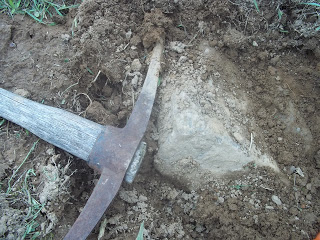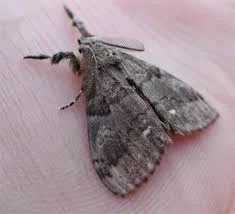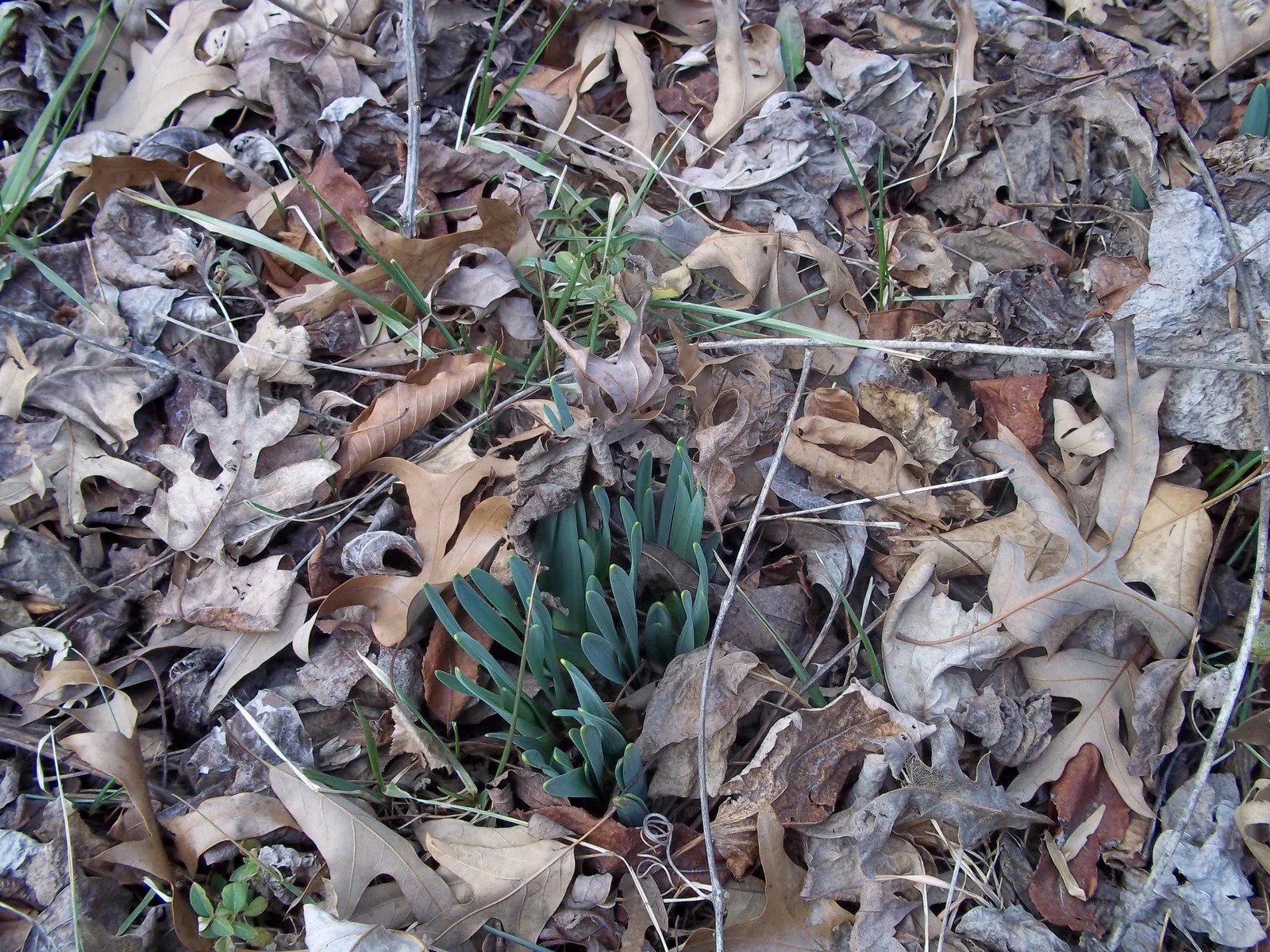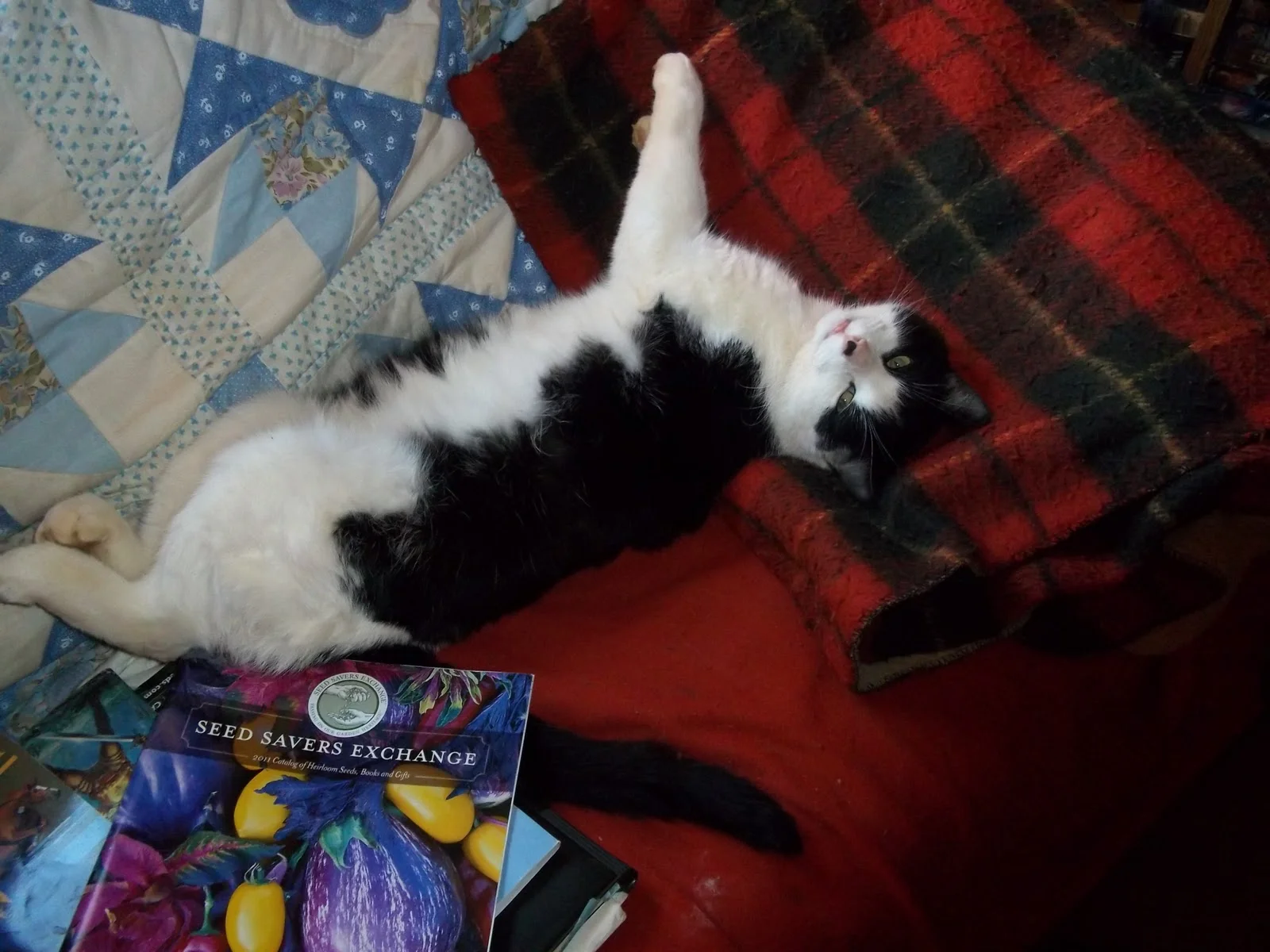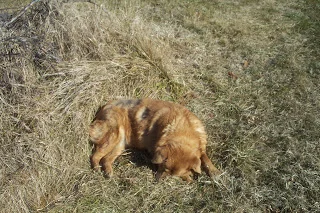Over 90 yesterday, and mid-to-upper eighties today according to the forecasts, and maybe that's it for awhile.
Maybe, even, that's it for the season, the last time we see 90 this year, although after this summer I don't intend to hold out hope until, oh, January or so.
But the prospect of at least a few days ahead with highs in the 70s and nights in the 50s both energizes and prompts a pause.
"Why did summer go so quickly?" Dusty Springfield sang decades ago, and the question returns every year, as it has returned now.
Yet even as the question rises and, I hope, the humidity drops along with the temperature, I find myself wondering just how quickly the summer of 2012 really passed. In some ways, all of them subjective of course, this one seemed to last forever, or at least be on track toward doing so. Days were long hot thick endless blankets — and most nights the same, one after another after another.
The Long Summer, Faulkner called one that he wrote of. When the movies, an industry that rarely misses an opportunity to gild already well-gilded lilies (or anything else), made a (bad) stab at an adaptation, the word Hot was added, but Faulkner knew best. The Hot was implied, in every word of his story, and the rest of The Hamlet, as the Hot has been implicit here all summer and now on past Labor Day.
Nor did the summer's biggest and most damaging storm offer much relief, in the way that a summer thunderstorm can drop temperatures as well as providing a sound and light show.
When the derecho blew its way through in late June, spreading damage and power outages in its straight-line wake, I opened the door, and felt just how hot as well as intense that wind was.
The days following the derecho were hot, too, no cool air blew in on that wind. The dumpsters, filling quickly with food gone bad during the power outage, just as quickly produced a funk, a phantasmagoria of a funk, layered and redolent of all the aromatics of decay, all the sours of spoil, every richness of rot. The sense of smell itself could be curdled just driving past a dumpster site. Closer in, flinging a bag of trash into the dumpster became a test of holding the breath, as well as the heave, if that's an appropriate word in this context, of the sack itself.
My distrust of air conditioning, and what it does to our sense of weather among other things., as well as my less particularized dislike of it as an idea, proved a blessing of a sort — air conditioning was one thing I didn't miss when the power was out, any more than when I am out of it (which is most of the time) on even the hottest days.My office isn't air conditioned, and I don't use air conditioning in the car. A resolve that rests upon open windows as well as core, or whatever, values, no matter how strongly held, can find itself well-tested by a few tons of meat and milk thawed and dumpstered in hundred degree weather.
But the trash got landfilled, and the power came back —— after a few days for us; longer for so many others -- and the funk dwindled, or dissipated, or burned itself out.
The heat was matched by the lack of rain, locally worse in this part of the county than others; and far milder here than in so many parts of the country. The passage of Isaac's remnants over the past week has done a little to alleviate the shortfall, though too late to help some of the garden.
Now as I write, the wind is beginning to pick up once more, no derechothis time, but a cold front coming through, with more rain, to be followed by cooler days and nights.
About time, probably — past time, to the tastes of many — but the thing about seasons of memorable weather is that they disrupt time's routines and rhythms. As true of this summer's heat as of the heavy winter a couple of years back. Severe seasons such as these, however unwanted, are gifts — of perspective and perseverance if nothing else, and they are gifts that need no mitigation from me, nor would I offer any. This piece is intended as commentary, not complaint, up to this point anyway..
The weather, day to day, and the climate, season to season, will be what they well be, and that is likely to remain the case.The climate is changing — what isn't is our nature.
On one side, the foolish insistence that humans can't dramatically affect the climate or the planet, is borne on wings of willful and, I often suspect, gleeful and contemptuous ignorance of what science is, much less what the scientific community has been trying to show us.
On the other side, at least on that part of the other side that possesses at least some power and influence, we get the paying of lip service and no more than that. Certainly no more than the minimum needed to get the lip service on record as mildly as possible, without tipping the pollster's needles an iota in any undesired direction. This is as much of a guarantee that nothing will be done as are the derisive chortles and mocks of the gleefully ignorant, not to mention the venal.
Whatever aspects of the changing nature of nature we have brought upon ourselves, and there are many, most of them dire, we are at the point where adaptation is becoming the watchword among even the most activist and angry, with acceptance tinged with weariness not far behind, and resignation, weariness in full if dessicated bloom, playing a gathering role in the mix as well.
We'll get used to it, the saying goes, whatever it is when it comes to what we have done and are doing to our planet. We have before.
But the real thing about seasons of severe weather, and what they do to the sense of time in the course of their duration, is that they remind us of what we are missing.
There have been a lot of reminders in recent seasons, and there are more, many more, on the way.




